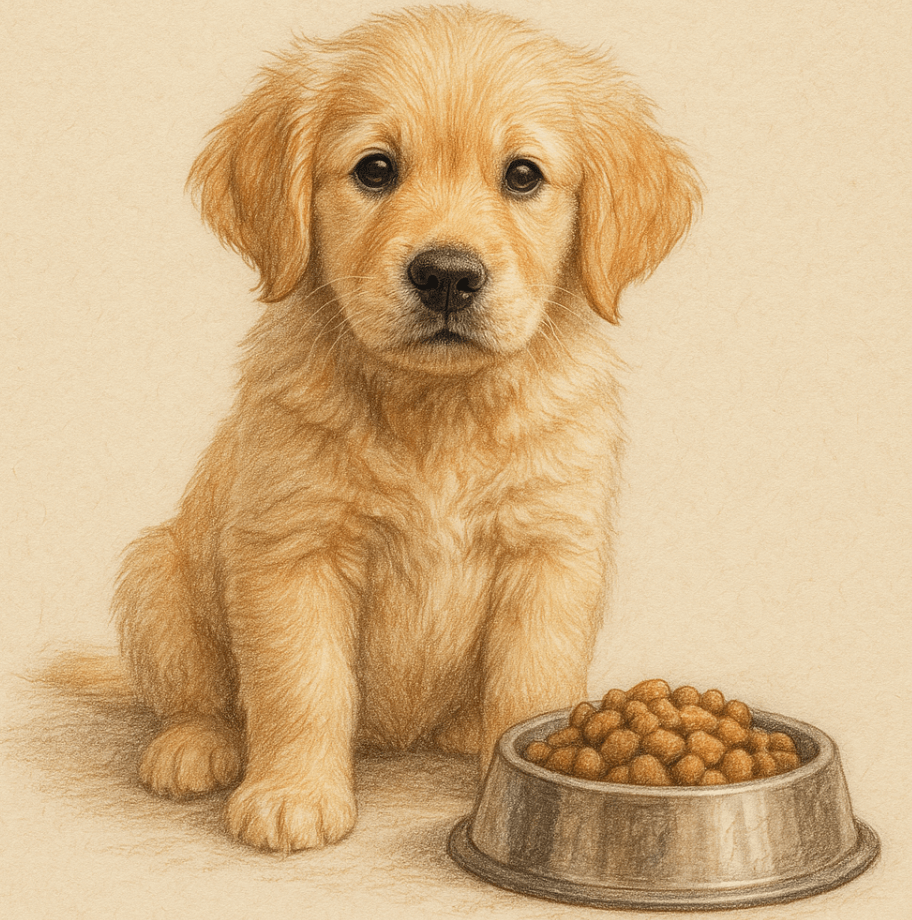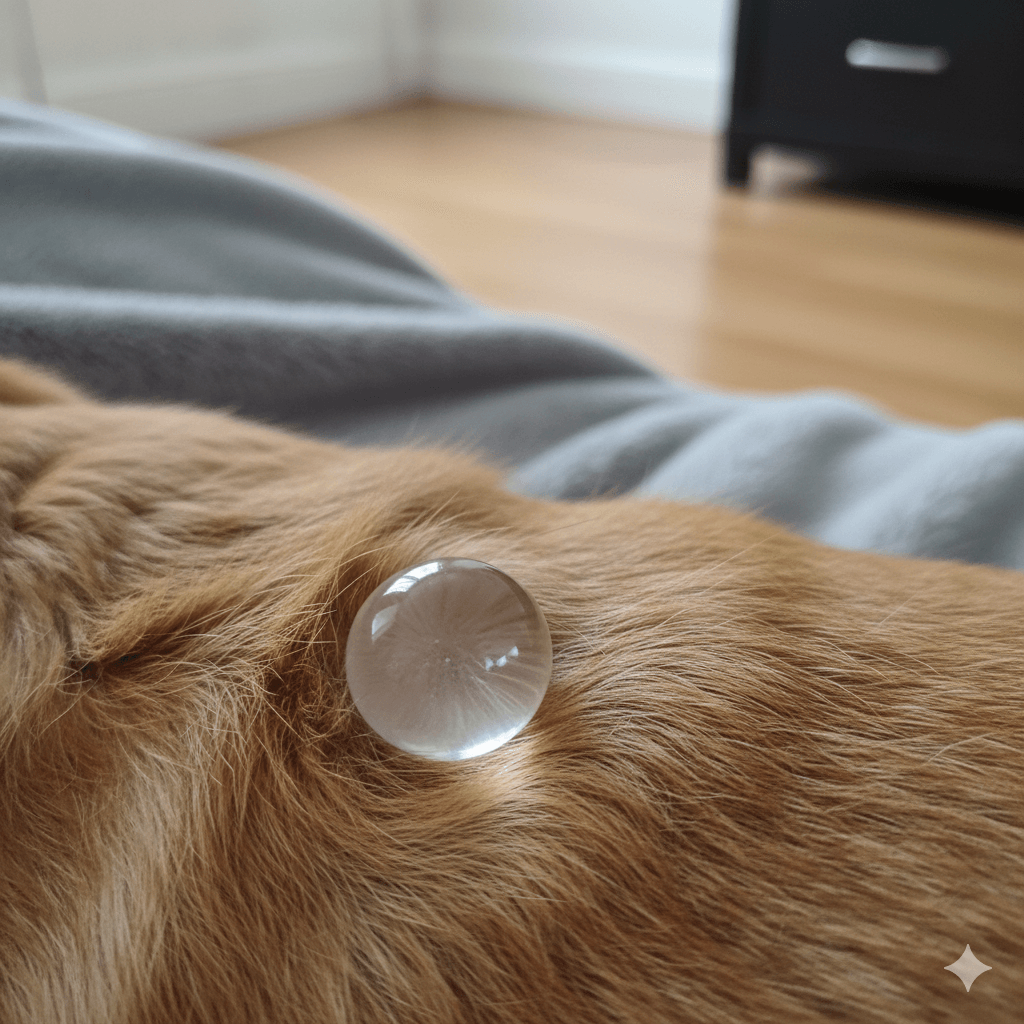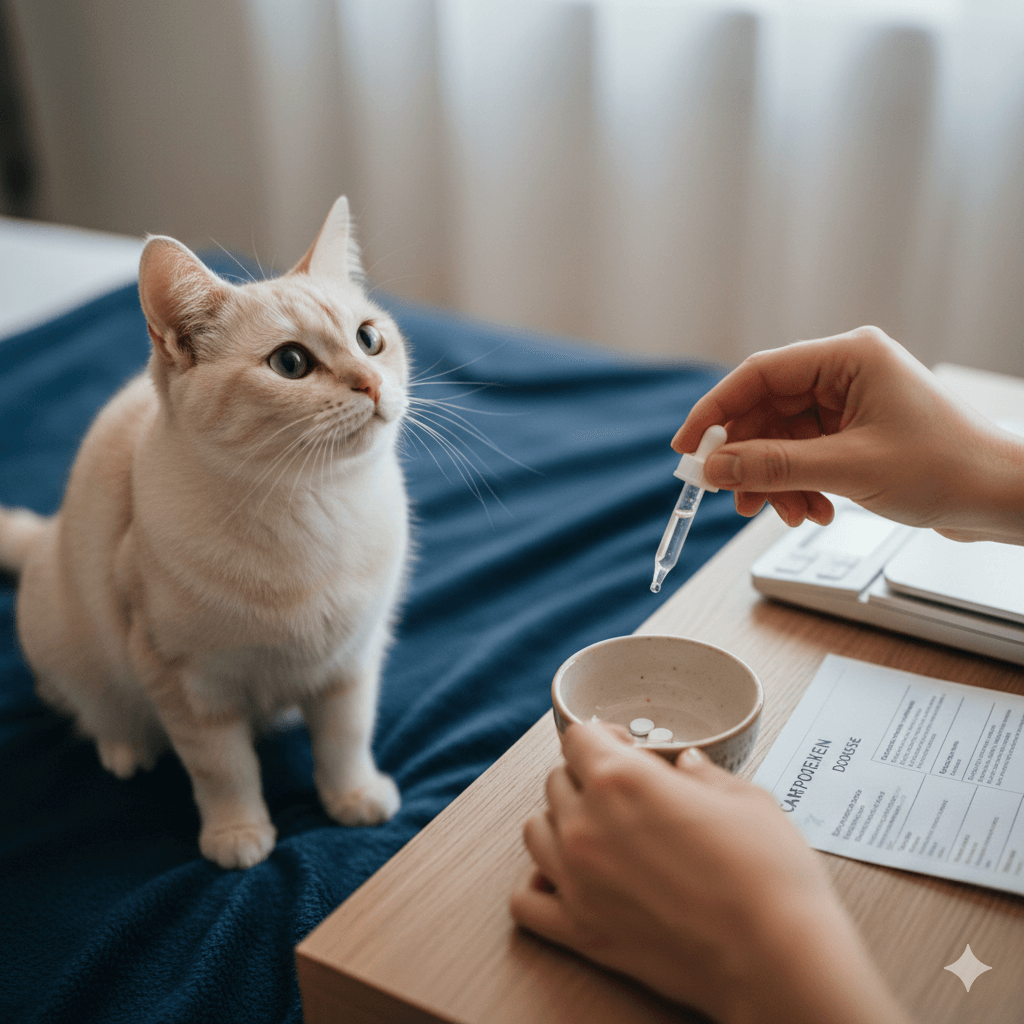How Much to Feed a Golden Retriever Puppy? A Complete Guide
Bringing home a Golden Retriever puppy is an exciting experience, but it also comes with the responsibility of ensuring they grow up healthy and strong. One of the most common questions new owners ask is, “How much should I feed my Golden Retriever puppy?” Proper nutrition plays a crucial role in their development, from supporting their rapid growth to maintaining their playful energy. However, overfeeding or underfeeding can lead to health issues like obesity or stunted growth. In this blog post, we’ll explore everything you need to know about feeding your Golden Retriever puppy, including portion sizes, feeding schedules, and tips for keeping them happy and healthy.
Golden Retriever Puppy Feeding Guidelines by Age
Golden Retrievers are a large breed that grows rapidly during their first year of life. Their nutritional needs change as they mature, so it’s important to adjust their diet accordingly. Here’s a breakdown of how much to feed your Golden Retriever puppy at different stages of their growth.
8-12 Weeks Old:
Puppies at this age should eat 3-4 small meals per day, with each meal consisting of ½ to ¾ cup of high-quality puppy food.3-6 Months Old:
Gradually increase the portion size to 1 to 1 ½ cups per meal, feeding them 3 times a day. This supports their rapid growth phase.6-12 Months Old:
Transition to 2 meals per day, offering 2 to 2 ½ cups per meal. Monitor their weight to avoid overfeeding during this critical growth period.12+ Months (Adulthood):
Once your Golden Retriever reaches adulthood, reduce portions slightly to prevent weight gain, aiming for 2 meals daily totaling 3-4 cups of food.Adjust Based on Activity Level:
Active puppies may require slightly more food, while less active ones might need smaller portions to maintain a healthy weight.
By following these guidelines, you can ensure your puppy receives the right amount of nutrients to support their growth and development.
Choosing the Right Food for Your Golden Retriever Puppy
Feeding your Golden Retriever puppy isn’t just about quantity—it’s also about quality. Selecting the right type of food ensures they get the essential nutrients needed for optimal health.
High-Quality Puppy Food:
Choose a brand specifically formulated for large-breed puppies, as it contains balanced protein, fat, and calcium levels.Avoid Overloading on Calories:
While puppies need plenty of energy, too many calories can lead to excessive weight gain and joint problems later in life.Look for Real Ingredients:
Opt for foods with real meat as the first ingredient and avoid those filled with artificial additives or fillers.Consider Grain-Free Options (If Recommended):
Some puppies may benefit from grain-free diets, but consult your vet before making this switch.Supplement with Healthy Treats:
Use treats sparingly and choose options made with natural ingredients to avoid unnecessary additives.
Selecting the right food lays the foundation for a healthy and happy Golden Retriever puppy.
Check this guide 👉Flat-Coated Retriever vs Golden Retriever: Best 7 Tips!
Check this guide 👉Are Golden Retrievers Hypoallergenic? Best 7 Expert Tips!
Check this guide 👉Great Pyrenees Golden Retriever Mix: Best 7 Expert Tips!

Daily Feeding Schedule for Golden Retriever Puppies | Key Nutritional Needs |
|---|---|
8-12 weeks: 3-4 meals daily | High protein for muscle development |
3-6 months: 3 meals daily | Balanced fats for energy |
6-12 months: 2 meals daily | Calcium for strong bones and joints |
12+ months: 2 meals daily | Omega-3 fatty acids for coat health |
Adjust portions based on activity level | Vitamins and minerals for overall health |
Signs Your Golden Retriever Puppy Is Eating the Right Amount
Monitoring your puppy’s eating habits and physical condition helps determine if you’re feeding them the correct amount. Look for these signs to ensure they’re getting enough—but not too much—food.
Healthy Weight Gain:
Your puppy should steadily gain weight without appearing overly round or bloated.Shiny Coat and Clear Eyes:
A glossy coat and bright eyes indicate proper nutrition and overall well-being.Consistent Energy Levels:
An adequately fed puppy will have plenty of energy for playtime but won’t seem restless or hyperactive.Regular Bowel Movements:
Firm, consistent stools suggest their digestive system is functioning properly.No Signs of Hunger or Overeating:
If your puppy seems constantly hungry or refuses food, adjust portions or consult your vet.
These signs confirm your Golden Retriever puppy is thriving on their current diet.
Common Mistakes to Avoid When Feeding Your Puppy
Even experienced dog owners can make mistakes when feeding their Golden Retriever puppy. Avoiding these pitfalls ensures your puppy stays healthy and happy.
Overfeeding:
Too much food can lead to obesity, which increases the risk of joint problems and other health issues.Skipping Meal Times:
Irregular feeding schedules can disrupt digestion and cause behavioral issues like begging or anxiety.Feeding Adult Dog Food Too Early:
Adult formulas lack the nutrients growing puppies need, so stick to puppy-specific food until they’re fully grown.Giving Human Food:
Many human foods are toxic to dogs, and even safe options can upset their delicate digestive systems.Neglecting Hydration:
Always provide fresh water alongside meals to keep your puppy hydrated and support digestion.
By avoiding these mistakes, you set your Golden Retriever puppy up for long-term success.
Tips for Transitioning to New Food
Switching your Golden Retriever puppy to a new type of food requires care to avoid digestive upset. Follow these tips for a smooth transition.
Gradual Mixing:
Start by mixing a small amount of the new food with the old, gradually increasing the ratio over 7-10 days.Monitor for Reactions:
Watch for signs of allergies or intolerance, such as vomiting, diarrhea, or skin irritation.Stick to One Change at a Time:
Avoid changing both food and treats simultaneously to isolate any adverse reactions.Consult Your Vet First:
Seek professional advice before switching formulas, especially if your puppy has dietary sensitivities.Maintain Consistency After Transition:
Once settled on a new food, stick with it unless another change is medically necessary.
A careful transition ensures your puppy adapts comfortably to their new diet.
Managing Treats and Snacks Responsibly
Treats are a great way to reward your Golden Retriever puppy, but they should be given in moderation to prevent overfeeding.
Limit Treat Portions:
Treats should make up no more than 10% of your puppy’s daily caloric intake.Choose Healthy Options:
Opt for treats made with natural ingredients, avoiding those with added sugars or artificial preservatives.Use Treats for Training:
Small, low-calorie treats work best for reinforcing positive behaviors during training sessions.Avoid Dangerous Foods:
Never give your puppy chocolate, grapes, onions, or other toxic human foods disguised as treats.Balance Treats with Meals:
Reduce meal portions slightly on days when your puppy receives extra treats to maintain balance.
Responsible treat management keeps your puppy motivated and healthy.
Understanding Growth Spurts in Golden Retrievers
Golden Retrievers experience several growth spurts during their first year, which can affect their appetite and energy levels. Understanding these phases helps you adjust their diet appropriately.
Rapid Growth Phase (3-6 Months):
During this time, puppies grow quickly and may demand more food to fuel their development.Plateau Periods (6-9 Months):
Growth slows temporarily, so you may notice a slight decrease in appetite during these phases.Final Growth Push (9-12 Months):
As they near adulthood, puppies undergo another growth spurt, requiring increased calories again.Joint Health Focus (Throughout Growth):
Proper nutrition supports joint health, reducing the risk of conditions like hip dysplasia.Tailored Adjustments:
Adjust portions and feeding frequency based on your puppy’s growth patterns and activity level.
By understanding these stages, you can tailor your Golden Retriever puppy’s diet to meet their evolving needs.
Frequently Asked Questions About Feeding Golden Retriever Puppies
How often should I feed my Golden Retriever puppy?
Puppies aged 8-12 weeks need 3-4 meals daily, while older puppies transition to 2-3 meals per day.
What happens if I overfeed my puppy?
Overfeeding can lead to obesity, joint problems, and long-term health complications.
Can I free-feed my Golden Retriever puppy?
Free-feeding isn’t recommended, as it makes it harder to monitor intake and control portion sizes.
Should I give supplements?
Only provide supplements if recommended by your veterinarian to avoid imbalances.
When can I switch to adult dog food?
Wait until your puppy is at least 12 months old before transitioning to adult food.
Nourishing Your Golden Retriever Puppy for a Lifetime of Health
Feeding your Golden Retriever puppy the right amount of high-quality food is one of the best things you can do to support their growth and happiness. By following age-appropriate feeding guidelines, choosing nutritious food, and avoiding common mistakes, you can ensure your furry friend develops into a strong, energetic adult. Remember, every puppy is unique, so pay attention to their individual needs and consult your veterinarian for personalized advice. With love, care, and proper nutrition, your Golden Retriever puppy will thrive and bring joy to your family for years to come.
Clear Fluid-Filled Cysts on Cats: Best 7 Expert Tips! – Learn causes, symptoms, and treatment options to manage cysts safely and ensure your cat’s health.
Clear Fluid-Filled Cysts on Dogs: Best 7 Expert Tips! – Discover causes, symptoms, and treatment options to manage these common yet concerning growths effectively.
Dog Seizure Symptoms: Best 7 Expert Tips! – Learn to spot signs, respond effectively, and manage seizures in dogs for a healthier, happier life.
Carprofen Dosage for Cats: Best 7 Expert Tips! – Learn safe dosing, risks, and alternatives to manage pain and inflammation in cats effectively.




